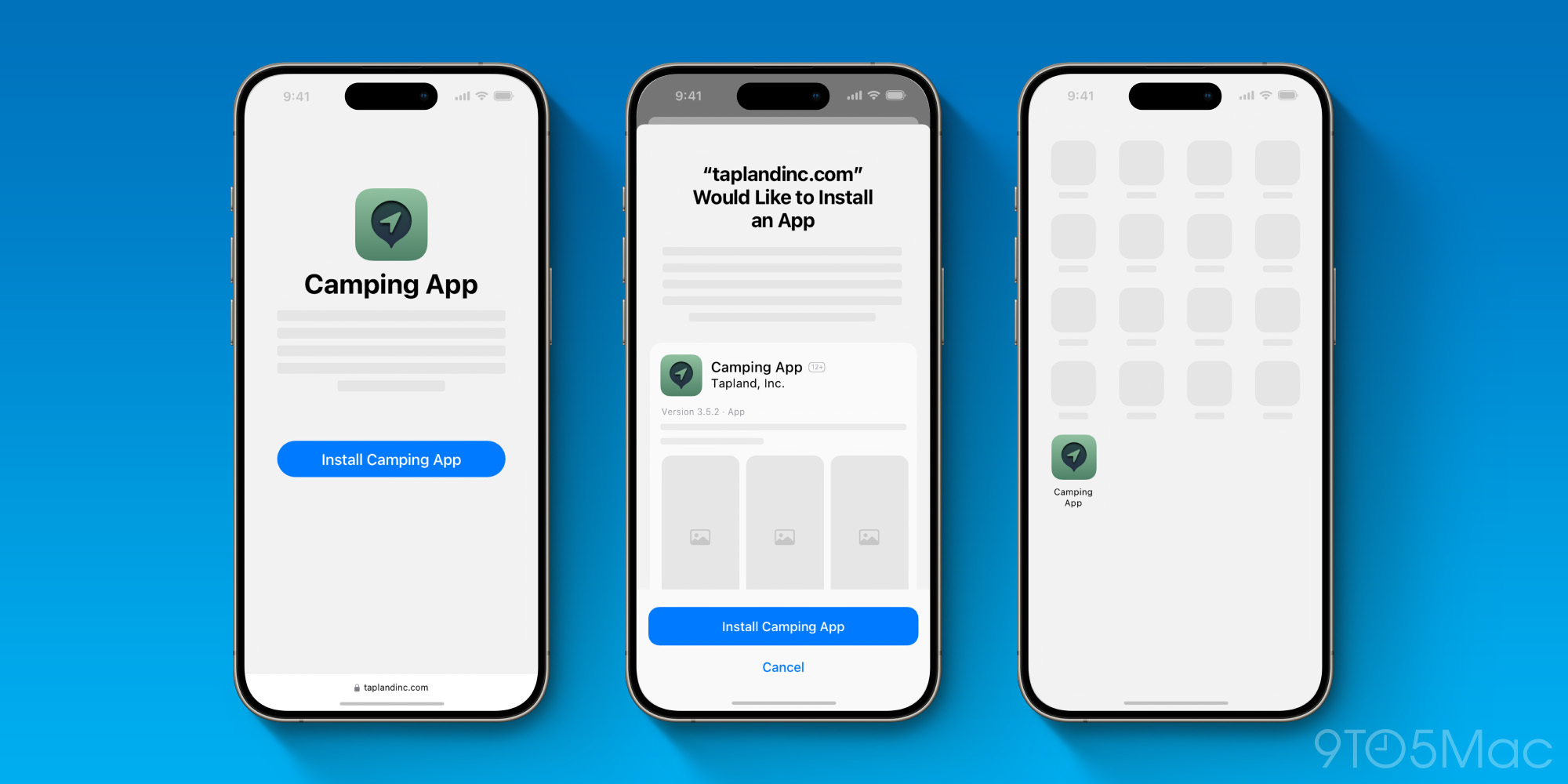Apple this year was forced to drastically change how iOS works in the EU due to the Digital Markets Act (DMA) antitrust law, which establishes a series of rules to prevent big techs from engaging in anti-competitive practices. However, it seems that the EU wants even more from Apple, as the European Commission is now demanding that the company ensure the “effective interoperability” of iOS with other platforms.
EU calls on Apple to further change the way iOS works
As reported by Bloomberg, the European Commission published a document on Wednesday as part of its antitrust investigations against Apple. In the document, the EU instructs Apple to change many aspects of iOS so that third-party developers can have access to technologies that currently only Apple can.
For instance, the document suggests that Apple make it easier for users to pair and control accessories such as smartwatches and headsets from other brands on iOS. It also says that the company should allow third-party apps to run entirely in the background – something that only Apple apps can currently do. The document even covers features such as AirPlay and AirDrop, which are currently limited to Apple devices.
The EU has set January 9, 2025 as the deadline for its consultation in the case. In response, Apple published an online document criticizing the European Commission and the DMA legislation, claiming that the situation is “becoming personal.” Unsurprisingly, Apple highlights its work on privacy and security, and says that the DMA requirements make its ecosystem less secure.
Apple says that if it opens up all technologies to anyone, it will put iOS users’ data at risk. Interestingly, Apple also notes that Meta is one of the companies that has made the most requests to access “Apple’s sensitive technologies” under the DMA.
If Apple were to have to grant all of these requests, Facebook, Instagram, and WhatsApp could enable Meta to read on a user’s device all of their messages and emails, see every phone call they make or receive, track every app that they use, scan all of their photos, look at their files and calendar events, log all of their passwords, and more. This is data that Apple itself has chosen not to access in order to provide the strongest possible protection to users.
Meta claims that it needs access to iOS technologies to provide a better experience with external devices such as Ray-Ban Meta smart glasses and Meta Quest headsets. However, Apple says that it already provides interoperability with these devices without the need for special permissions.

The EU may launch a formal probe against Apple if the company fails to comply with the DMA rules. This could result in heavy fines of up to 10% of the company’s global annual sales.
Last month, the Brazilian regulator also ruled that Apple should open up its ecosystem to third-party developers. Although Apple has appealed the decision, the company could still be forced to enable sideloading in Brazil as well.

